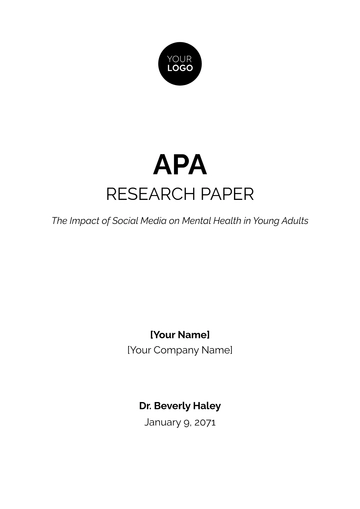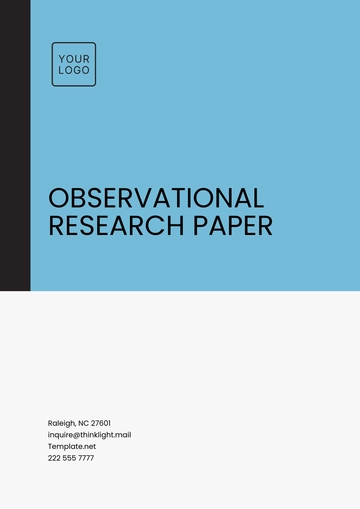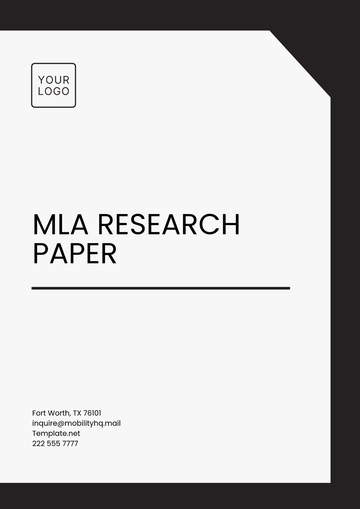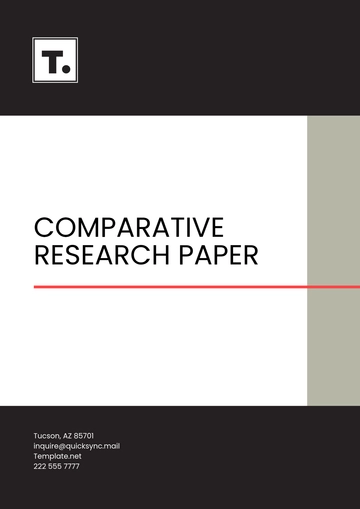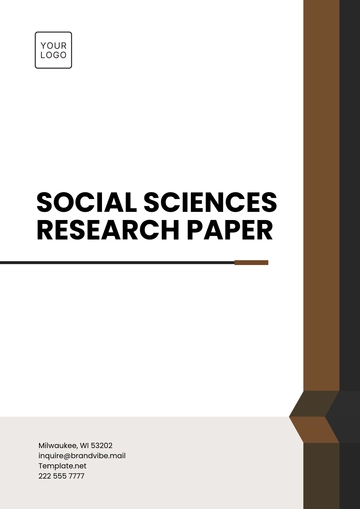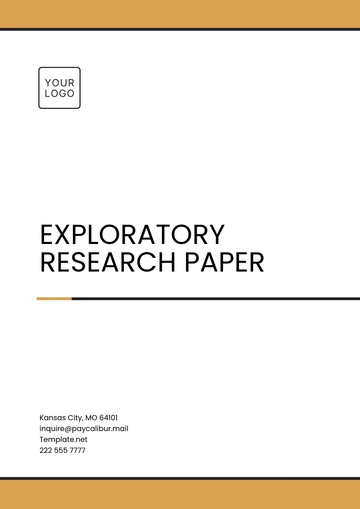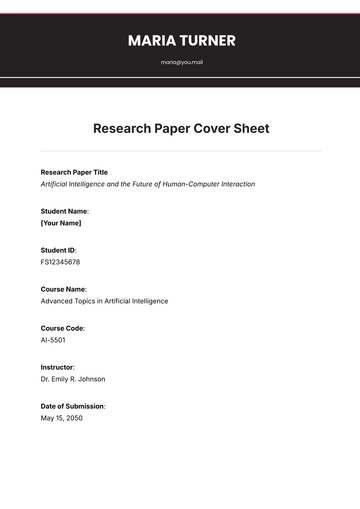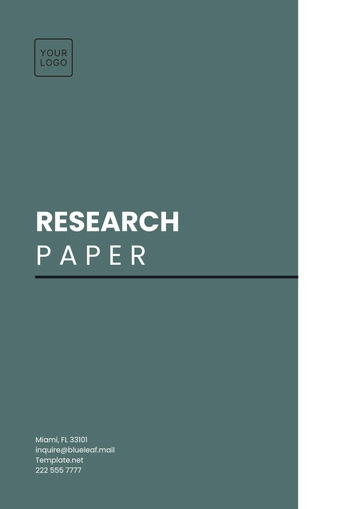Free Ethics in Research Paper

Researcher: [Your Name]
Date: [Date]
I. Introduction
Research is a fundamental aspect of academic and scientific advancement. However, it is imperative that such endeavors are conducted with strict adherence to ethical guidelines to ensure the integrity of the research and the welfare of participants. An Ethics in Research Paper examines the ethical considerations and guidelines involved in various research activities. This paper addresses issues such as consent, privacy, integrity, and the responsible treatment of research subjects.
II. Literature Review
Extensive literature exists on the subject of ethics in research, highlighting diverse perspectives and historical developments. Early frameworks such as the Nuremberg Code and the Declaration of Helsinki set the foundation for modern ethical standards. Recent studies emphasize the evolving nature of ethical guidelines in response to technological advancements and globalization. Additionally, various theoretical models, such as principlism and consequentialism, have been explored to inform ethical decision-making in research.
III. Ethical Principles
Several core ethical principles are universally acknowledged in research:
Respect for Persons: This principle mandates that researchers recognize the autonomy of individuals and obtain informed consent. In the context of advanced technologies, ensuring clarity about data usage and maintaining transparency about the research purpose are crucial.
Beneficence: Researchers are obligated to maximize benefits and minimize potential harm. With emerging technologies, this principle extends to assessing long-term impacts and unforeseen consequences.
Justice: This principle ensures the equitable distribution of research benefits and burdens. In a global research environment, it requires addressing disparities and ensuring fair treatment of all participants, regardless of their geographical location.
Integrity: Maintaining honesty and transparency in the research process is essential. This includes accurate reporting of findings and avoiding any form of data manipulation or falsification.
Confidentiality: Protecting the privacy and sensitive information of participants is critical. Advanced data encryption and anonymization techniques are increasingly important in safeguarding participant information.
IV. Methodology
The methodology section outlines the essential steps and protocols researchers should follow to ensure ethical compliance:
Informed Consent: Researchers must provide detailed information about the research, including potential risks and benefits, and obtain voluntary consent from participants. This process should be adapted to account for new technologies and communication methods.
Ethics Review Board (ERB) Approval: Research proposals must be reviewed and approved by an ethics committee. In the 2050s, this may involve virtual review platforms and multidisciplinary panels to address diverse ethical concerns.
Data Protection: Implement robust measures to secure and anonymize data. The use of blockchain technology and advanced encryption methods can enhance data security and participant confidentiality.
Monitoring and Reporting: Establish regular monitoring of research activities and implement protocols for prompt reporting of any ethical issues. Real-time monitoring tools and automated reporting systems can facilitate this process.
V. Case Studies/Examples
Real-world examples illustrate the application of ethical principles in research:
Case Study | Ethical Issues | Resolution |
|---|---|---|
Tuskegee Syphilis Study | Lack of informed consent, exploitation of vulnerable populations | Implementation of stringent consent requirements and ERB reviews |
Facebook Emotional Contagion Study | Manipulation of user data without explicit consent | Emphasis on transparency and user consent in social research |
VI. Discussion
Ethical considerations in research are increasingly complex and multifaceted. Balancing scientific advancement with ethical obligations remains a challenge, particularly as new technologies and global collaborations introduce novel ethical dilemmas. Researchers must navigate these challenges with a commitment to evolving ethical standards and cultural sensitivity. As technological innovations continue to reshape research practices, ongoing education and dialogue about ethics will be essential in ensuring that research remains a force for positive societal impact.
VII. Conclusion
In conclusion, adhering to ethical principles is fundamental to the credibility and societal impact of research. Researchers must uphold the highest standards of integrity, respect, and fairness in their work. Continuous education and discourse on ethical issues will help address emerging challenges and ensure that research contributes positively to society while safeguarding the rights and dignity of all participants.
VIII. References
Here are some key references used in this research paper:
World Medical Association. (2050). Declaration of Helsinki: Ethical Principles for Medical Research Involving Human Subjects.
Belmont Report. (2051). Ethical Principles and Guidelines for the Protection of Human Subjects of Research.
Beauchamp, T. L., & Childress, J. F. (2053). Principles of Biomedical Ethics. Oxford University Press.
Bryman, A. (2055). Social Research Methods. Oxford University Press.
Resnik, D. B. (2058). The Ethics of Research with Human Subjects: Protecting People, Advancing Science, Promoting Trust. Springer.
- 100% Customizable, free editor
- Access 1 Million+ Templates, photo’s & graphics
- Download or share as a template
- Click and replace photos, graphics, text, backgrounds
- Resize, crop, AI write & more
- Access advanced editor
Ensure your ethical analysis is clear and impactful with Template.net's Ethics in Research Paper Template. This customizable and fully editable template is designed to present complex ethical issues with precision. Editable in our Ai Editor Tool, it offers easy modifications, allowing you to tailor your paper to meet high ethical and academic standards.



